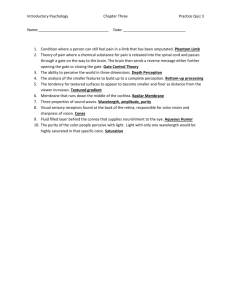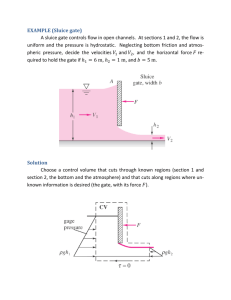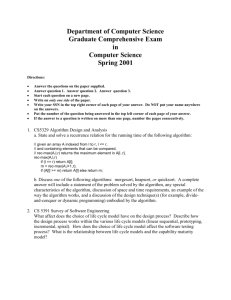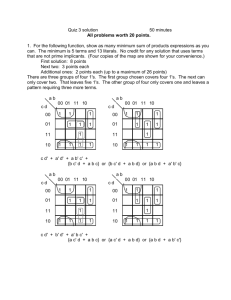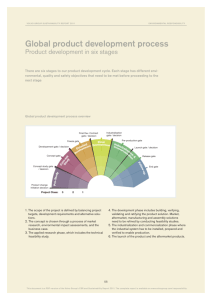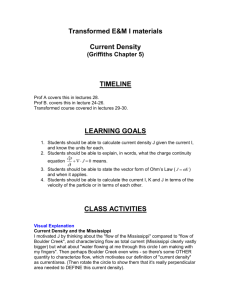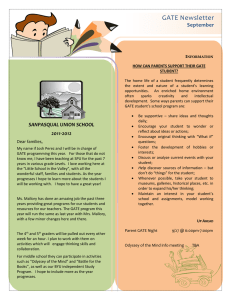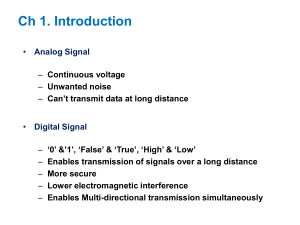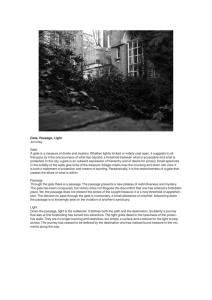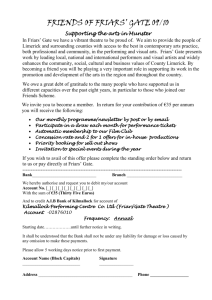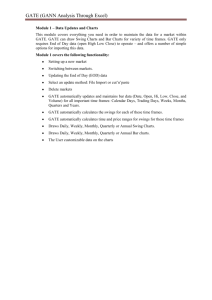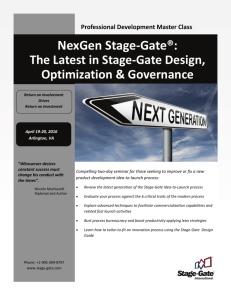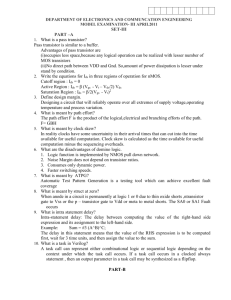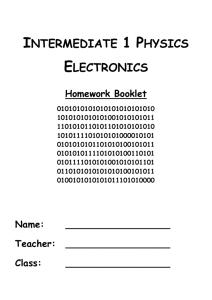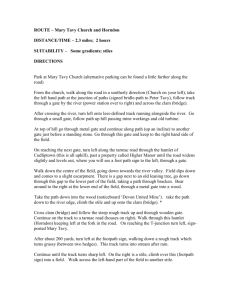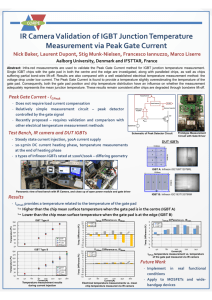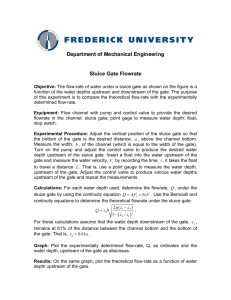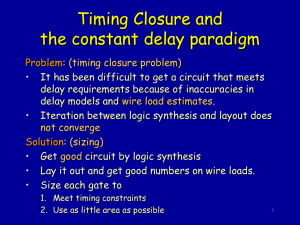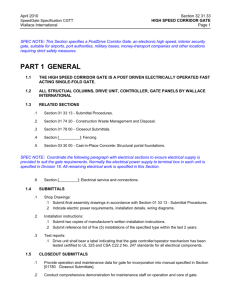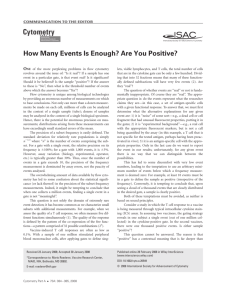Differentiating Instruction for GATE Students
advertisement
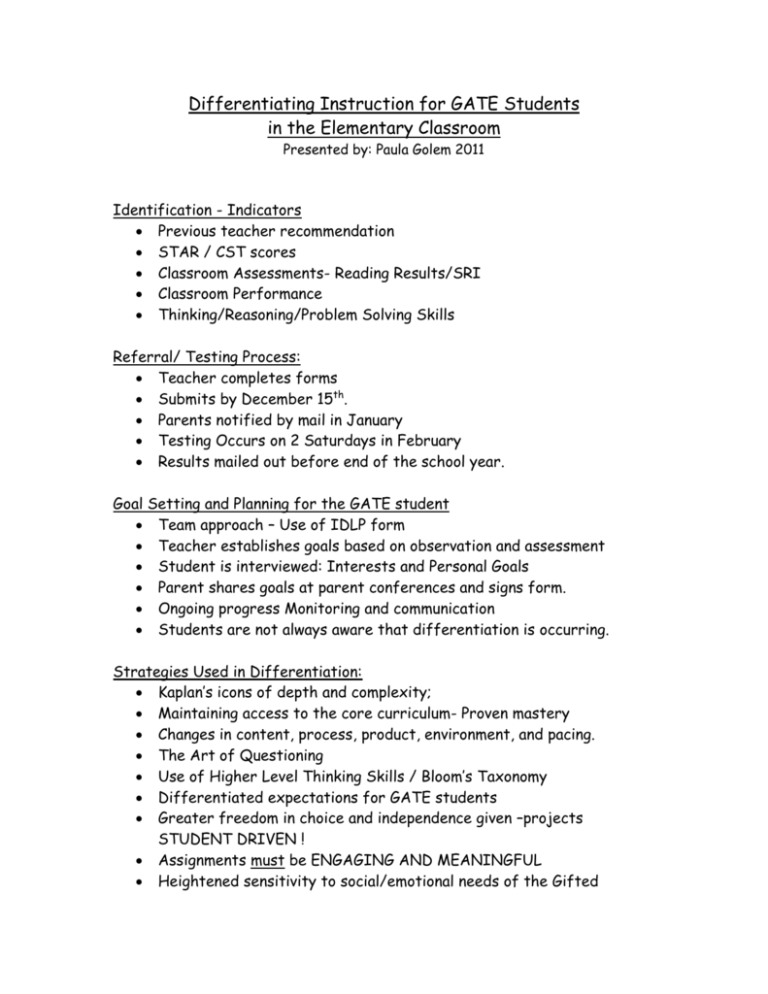
Differentiating Instruction for GATE Students in the Elementary Classroom Presented by: Paula Golem 2011 Identification - Indicators Previous teacher recommendation STAR / CST scores Classroom Assessments- Reading Results/SRI Classroom Performance Thinking/Reasoning/Problem Solving Skills Referral/ Testing Process: Teacher completes forms Submits by December 15th. Parents notified by mail in January Testing Occurs on 2 Saturdays in February Results mailed out before end of the school year. Goal Setting and Planning for the GATE student Team approach – Use of IDLP form Teacher establishes goals based on observation and assessment Student is interviewed: Interests and Personal Goals Parent shares goals at parent conferences and signs form. Ongoing progress Monitoring and communication Students are not always aware that differentiation is occurring. Strategies Used in Differentiation: Kaplan’s icons of depth and complexity; Maintaining access to the core curriculum- Proven mastery Changes in content, process, product, environment, and pacing. The Art of Questioning Use of Higher Level Thinking Skills / Bloom’s Taxonomy Differentiated expectations for GATE students Greater freedom in choice and independence given –projects STUDENT DRIVEN ! Assignments must be ENGAGING AND MEANINGFUL Heightened sensitivity to social/emotional needs of the Gifted What is NOT GATE differentiation: More of the same.. additional pages of work below instructional level Helping struggling students in class with their work Helping the teacher with classroom chores. **A Sample of Differentiated GATE Activities occurring in the classroom: Writing: Monthly Class Newspaper SCRIP Writer’s Workshop Every Picture Tells a Story Writing Folder Poetry Books/ Songs/ Plays Pen Pal Letters Research on selected topics with Power Point or Hyperstudio Presentations Kidspiraton/ Inspiration semantic webbing Student write their own books Reading: Appropriate novels chosen by student’s interest and reading lexile Book Clubs Discussions Author Studies and Comparisons Contact with the Author Tumble Readers Student narrated books on tape Orchard Software Mathematics: Open Ended Question and Responses Math Journal with Logic and Problem Solving Challenges Challenge Box of puzzles and mind teasers Making the EDM games more challenging Computer websites / Orchard Software Excel Math Computer Jeopardy Technology: Wiki Spaces – class and individual sites, written and maintained by the students Web Quests Power Point/ Hyperstudio Digital Photo Essays **Two Parent Evening Meetings: Instead of traditional informational meetings; At Lang Ranch we frequently choose to invite parents and children to participate in hands-on GATE activities and experiments with “Mad Science” Suggested Websites for GATE students: www.educationalwikis.wikispaces.com/ www.gateadventures.com www.gamegate.com/gamesjsp www.blogwikispace.com www.xwiki.com www.wikispaces.com www.curriki.org Suggested Sites for WebQuests: www.webquest.org www.sentex.net www.yesnet.yk/ca/schools/wes/webquest Paula Golem 2011
